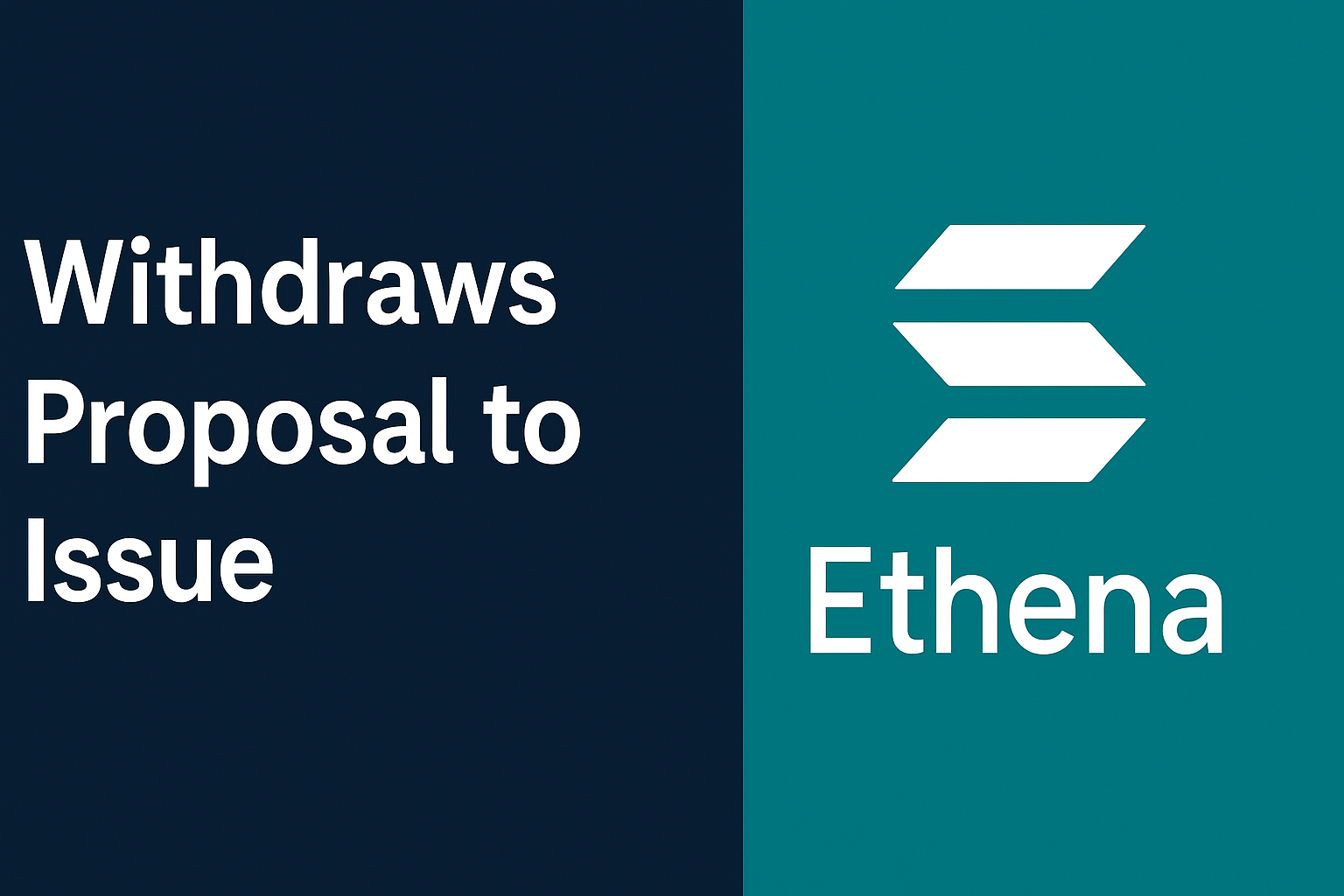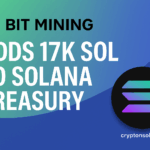Ethena Labs has officially exited the competition to issue USDH, Hyperliquid’s upcoming native stablecoin. Founder Guy Young cited4 feedback from validators and the community raising issues about Ethena’s suitability for the role—including concerns that the team is not “Hyperliquid-native”, has multiple external product lines, and conveys broader ambitions beyond partnering with a single exchange.
What Led to the Withdrawal
- The decision comes after direct discussions with Hyperliquid community validators, who voiced worries over whether Ethena’s operations and product portfolio could dilute commitment to USDH. Ethena’s pursuit of many product lines, in addition to USDH, contributedJ to concerns.
- Another point raised was Ethena’s lack of being “native” to Hyperliquid—meaning the community felt Ethena might not have the same vested interest in the protocol’s long-term ecosystem alignment as a team built specifically for it.
- Recognizing these concerns, Young said Ethena would “step aside rather than escalate tensions,” commending the Native Markets team as now favored in the race.
Effects on the USDH Bid Landscape
- Ethena’s withdrawal consolidates the competition. Native Markets now appears to be the front-runner to issue USDH.
- Prediction markets and validator signals have shifted significantly toward Native Markets following the development.
- Other teams, such as Paxos and Agora, remain in the race but are now operating under a landscape changedJ by the exit of one heavyweight candidate.
Ethena’s Plan After Withdrawal
Although Ethena has pulled its USDH proposal, the company is not stepping away from Hyperliquid’s ecosystem:
- It will continue to work on hUSDe, a native synthetic dollar within Hyperliquid.
- Development of USDe-powered savings solutions and card products is still in progress. These offer use cases beyond stablecoin issuance but rooted in the broader capital and payments infrastructure.
- Ethena also plans to build out hedging flows, support Hyperliquid’s HIP-3 markets, and explore reward-bearing collateral, modular prime broking, and equities perpetual swaps.
Why This Matters
- The USDH proposal process highlights how much community sentiment and ecosystem alignment matter in governance decisions for Web3 projects. Even well-resourced proposals can be derailed if they are perceived as misaligned with core values or structure.
- Ethena’s exit underscores preference for native teams—those built for and deeply integrated into a particular protocol—over external projects, especially when the project in question is central to the protocol (like a native stablecoin).
- The outcome will have significant economic implications. The issuer of USDH stands to channel considerable reserve yield, protocol revenue, and influence over stablecoin flows within Hyperliquid.
What to Watch Next
- Validator voting outcomes: The final decision on USDH’s issuer is pending a vote among validators. The timeline is tight5 and the decision will set precedent for future governance.
- Native Markets’ proposal details: As the top remaining candidate, how their proposal addresses community concerns—regarding decentralization, yield distribution, reserve management—will be closely examined.
- Ethena’s product execution: Even without issuing USDH, the success of Ethena’s hUSDe, savings, cards, and hedging tools will likely influence its long-term reputation and possibly future bids.
- Ecosystem reaction: How the broader Hyperliquid0 community, including smaller stakers, delegators, and end users, perceives this process—whether it enhances trust in governance or raises concerns about fairness—could affect adoption and stability.
9XTW0AII












